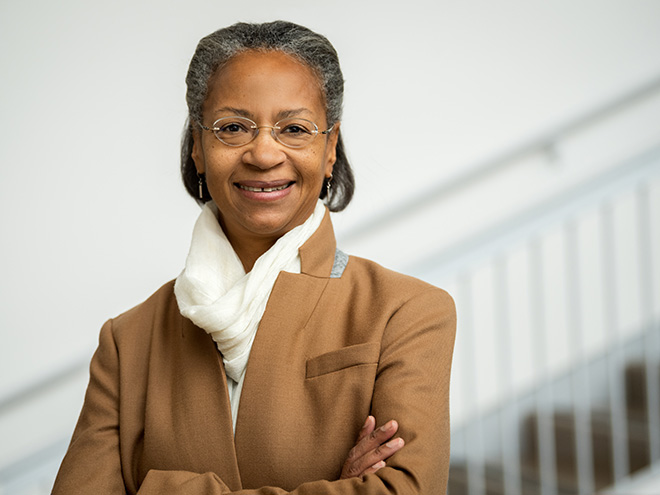
Maria Madison joined the Heller School as associate dean in 2017, and became director of the Institute on Assets and Social Policy in fall 2020. Among her first tasks as director was to conceive a new vision and to co-create a new name for the institute. Earlier this month, the team announced a new title: the Institute for Economic and Racial Equity (IERE).
Madison explains the need for a new name and describes IERE’s new initiatives.
Why is now the right time to change the institute’s name? And how did you decide on the “Institute for Economic and Racial Equity”?
Many people think of this moment in time as a racial justice inflection point, with George Floyd’s death as an eight minute, 46 second-long catalyst. But really, the answer to ‘why now?’ is that this moment has always been here for us to respond to.
There are cyclical moments in history where those in power are willing to take the risk and acknowledge that the inequity gap is fueled by a throughline of racism and discrimination with roots in 400 years of history. The institute has always been involved with issues of racial justice, but now felt like the right time to put it front and center. The only way to face the inequity is to face its root cause.
I started by asking the team to summarize their work, and I converted that into word clouds. The words “race” and “equity” figured prominently. We had a series of conversations over the course of several months, culminating in the team coalescing around their chosen new title, led by Research Associate Sylvia Stewart and Program Administrator Kerry Harris.
What is it about the new name that excites you most?
I’m most excited about the new federal-level focus on racial equity, including President Biden’s recent executive order on advancing racial equity and support for underserved communities through the federal government. It’s validation that we’re aligned with the most influential levels of those engaged in sustainable progress and public transformation.
I believe we should center racism as a public policy crisis. You can’t have an impactful approach to these issues unless they are supported at every level of policymaking. I think IERE is uniquely poised to transform communities in a sustainable way.
We’re building on the institute’s excellence, such as its research on policies intended to generate transgenerational wealth and health for persistently disadvantaged populations. We want to build on that, to start looking at racial disparities in terms of geography, access to opportunity, education, employment and health services.
What are some next steps for IERE?
Our burgeoning strategic plan is to build a truly interdisciplinary and multicultural institute, because the best answers to tough problems come from triangulating across methods and sources. This includes hiring or partnering with multicultural economists, historians, epidemiologists, sociologists, legal experts and more. We’re establishing affiliate appointments which will provide additional student mentorships while contributing to institute research and programs that help close the inequity gap.
We’ve already established new partnerships with local, regional and national organizations centering on racial equity, such as the RAND Corporation (including an internship on reparations), Waltham Black Futures Fund, and William James College on mental health and jobs. We want to build additional partnerships to draw in more ideas. We also hope to engage a pipeline of young scholars of color, including from HBCUs and HSIs [Historically Black Colleges and Universities, and Hispanic-Service Institutions], establish a postdoctoral program, and develop an advisory board.
